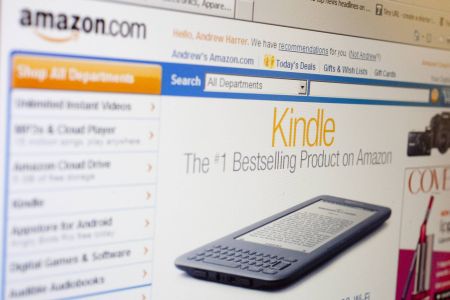EVERY decade or so, the music industry undergoes some kind of radical transformation.
And no, I’m not talking about the demise of the boy band, or the rise of hip-hop or the latest Internet singing sensations. I’m talking about the fundamental changes in the way you buy, listen and store music.
This generation of youths probably won’t remember a time when cassette tapes ruled the world, and a teenager’s pride and joy was to own a Sony Walkman of the slim variety.

Remember one of these babies? It wasn't too long ago that the Sony Walkman was THE coolest gadget for music.
In the 1990s, the gadget to own was the CD Walkman. Then, it was the rise of the MP3 and the domination of the iPod.
What’s the next big shift in music? I’ll give you a clue – it’s white and puffy and tastes like air.
Today, the iPod is fast being replaced by iPhones and its competitors. This might be anecdotal, but most people I know today don’t carry a separate music player anymore. They use their cellphone to play music, and and the beauty of that is they are able to connect to the Internet, which seems to be where our music is heading next.
Last month, surprisingly, it was Amazon who led the way with the launch of its CloudDrive product. Customers can subscribe to not only 5GB of storage for free, but Amazon has also sneakily tied in its music store into the equation by allowing customers to store their music store purchases on their CloudDrive and stream the music onto their devices for free.

Amazon has stolen a lead in the race for music streaming based on cloud computing with the launch of CloudDrive
Following CloudDrive’s launch, it was revealed that Google had been working on a similar plan for their widely rumoured, but yet-to-be-launched music service – Google Music. Leaked screenshots showed that the music service would be cloud-based, offering streaming via WiFi or “cached” onto local storage, and would be rolled out with an update to Android 3.0, Google’s mobile operating system.
The spanner in Google’s plan, however, is the lack of any licensing agreement with the big players of the music industry – Warner, Sony, EMI and Universal. The labels, seemingly shaken by Amazon’s sneak-attack move, appear to have stalled on any agreement with Google.
Meanwhile, it seems that Apple might have stolen the lead again with an announcement last week that it had reached an agreement with Warner Music to offer streaming services for songs from the label’s catalogue.
Apple had bought early Internet music service LaLa which provided a controversial music service where it allowed customers to purchase physical music CDs, rip those CDs into a digital format, and allowed customers to stream music they owned.
It’s almost like a game of poker where everyone had been biding their time and are now revealing their hands, resulting in a mad rush to be the first to offer streaming music services on the cloud.
It is not that this is an entirely new trend – the path to streaming music off the cloud is littered with failed past attempts – but we’re probably reaching the right time for a service like this to succeed.

Soon, you won't have to sync your iPhones/iPads to get your music. You just stream it from the clouds.
Firstly, mobile Internet is now taking off like never before thanks to the growth in smartphones, spurred by the iPhone and Android. Secondly, smartphone usage is increasing, with more and more consumers replacing their old plain phones with shiny new smartphones. Thirdly, storage is getting cheaper, meaning the cost to run such a service is going down.
Why would a cloud service appeal to you? Firstly, by hosting everything on the cloud, you no longer have to worry about the memory on your device getting clogged up by millions of songs that you probably will amass.
You’d also avoid the hassle of having to plug your phone into iTunes to transfer and swap tracks every so often. Now, you can just get at your entire collection wherever you are.
Moving to the cloud also means more and more, the experience of the service relies less on the device. Most of the heavy-lifting can be done on the crowd and the same experience can be delivered to both high-end and low-end devices, making the service more accessible. No longer would the manufacturer have to worry about creating a desktop application to let you transfer music, and worry about compatibility.
Along with the move to cloud, I think we’ll also see some changes in how the music industry sells you music. For example, a cloud service sounds like the perfect delivery vehicle for a subscription-based model. Pay a monthly fee, and you’ll have access to all the music you want. Stop paying, and the company doesn’t have to worry about turning off the files you’ve downloaded.
Sounds like an exciting future? I’m guessing that it’ll be a while before cloud-streaming services reach Malaysian shores – at least the kind that we would love to use. But at least now you know what’s around the bend.
> David Lian likes to make wild guesses about the technology of the future and hope they come true. Follow him on Twitter at http://www.twitter.com/davidlian.

Tell us what you think!